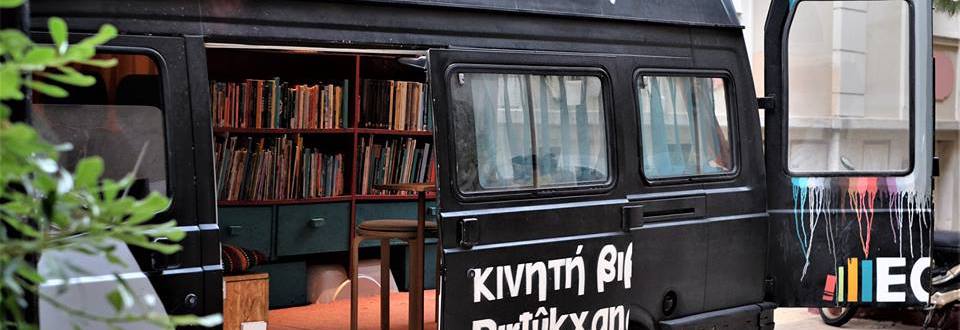
The practice of curating libraries can be traced back to 2600 BC while their significance as hubs of knowledge remains uncontested until this day. Libraries, often synonymous with learning, complement existing educational institutions. In situations where these institutions have diminished, particularly for refugee and migrant communities, libraries are becoming a key component of responding to this crisis.
In my experience, returning to Athens to map refugee education initiatives and deliver the Learners’ Voice Program revealed that the landscape has changed significantly since the peak of the refugee crisis in 2015. There is much to be optimistic about as the city has collectively galvanized support for sustainable and long-term solutions for refugees and newcomers, moving away from a purely emergency response. Education is high on this collective agenda; organizations like Project Elea and METAdrasi are working tirelessly and creatively to offer a host of learning opportunities.
Most people on the move have had their formal education disrupted by conflict and unfathomable journeys to safety. Similar to schools, libraries hold significant social and cultural capital that not only denotes the importance of the written word but also opens pathways, especially for adult refugees, to reconnect with a journey of learning that has ceased. Project Elea and Echo Library have started curating libraries to serve as repositories of knowledge for people to interact with outside of structured education sessions. In this context, libraries play an essential role in not only resuming their learning processes but also restoring agency to personalize learning based on self-assessed needs. Thus, for people on the move, libraries no longer serve a purely complementary function to formal education institutions but serve as stand-alone hubs of self-learning. Upon spending time with Echo Library, I came to understand that readers designed their own ways of interacting with the limited content in the mobile library from learning a new language to engaging with a piece of poetry.
Leading Integration Through Libraries
The case for the library is not only a sentimental impulse but research suggests that access to safe spaces offered by libraries not only support learning and literacy but also builds trust, self-reliance, and social capital. The ability of refugees and migrants to be independent and trust host communities is essential to achieving social and economic integration. Furthermore, libraries also serve as untethered spaces to engage in various maker projects that lend itself from the books and resources available. Libraries around the world transform their spaces to offer informal learning opportunities such as reading circles, adult peer teaching classes, conversation sessions or simply a place to escape. The potential for libraries to transform and support refugee communities is infinite from integrating community-led library programs to acting as a bridge for social integration by collaborating with public libraries.
Re-Connecting with Culture
Libraries must also adapt to serve as an intentional space that creates and fosters diverse communities. One of the most deep-rooted human instincts is the ability to connect to one’s culture and share it with future generations. War and conflict disrupt these processes, but libraries can attempt to cater to the diverse experiences of readers by providing collections that are multilingual and reflect the culture of the reader. Culturally relevant resources ensure cultural and self-actualization processes can continue across generations. Due to the various motivations and pressures to learn the language of the host country, the opportunity to engage intellectually with one’s own mother tongue disappears. Unsurprisingly, books in Urdu, Farsi, Arabic, and Bengali are often on the wish list in Echo Library, even if the titles are ones that the reader has already read.
As libraries become increasingly digital, the importance of a physical space is even more evident in a refugee context like Athens. A designated space for self-learning creates a sacred space for a wide range of learning opportunities in a rather chaotic and uncertain environment. As important as it is to have well-defined curriculum and education activities, they often struggle to motivate and include adolescents and adults. The self-reliant and inquisitive characteristics of the library engagement and the visceral experience of picking a book transcend barriers of age.
Realizing the Potential of Libraries
In order to realize and enhance the potential of libraries, local and global communities can provide support and innovation. Ideas Box by Libraries without Borders transformed the familiar library into a portable one to meet the needs of transient and disconnected communities through technology. While in Nepal, READ Library addressed the marginalization of women by funding and designing community libraries to train and empower readers. Similarly, addressing the diverse needs of refugees, asylum seekers and migrants in Athens require additional financial and administrative support to functionalize the limited spaces available to ensure self-actualization, community building, and learning practices are nurtured and sustained.


